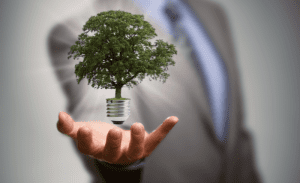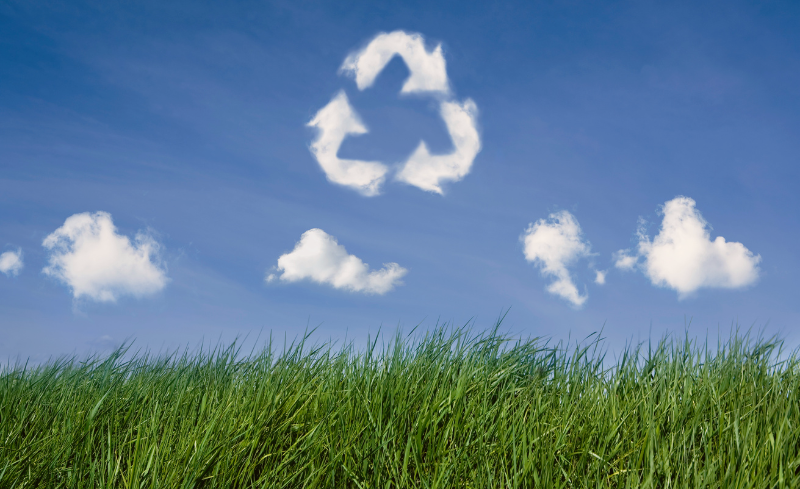Every January 26, the International Clean Energy Day reminds us of the key role that renewable sources play in the fight against climate change and the reduction of the ecological footprint. In this article, we explain how Clean Energy is present in waste management, what its benefits are and what good practices can be adopted by companies and citizens to accelerate the transition towards a more efficient energy model.
INTERNATIONAL CLEAN ENERGY DAY: TOWARDS A FUTURE WITHOUT EMISSIONS

January 26, International Clean Energy Day, reminds us of the importance of promoting the use of renewable energy sources and reducing dependence on fossil fuels.
Clean Energy is key to combating climate change, reducing the ecological footprint and caring for the environment.
The transition towards an energy model based on Clean Energy is an environmental commitment for a more resilient and sustainable future.
WHAT IS CLEAN ENERGY?
Clean Energy is energy that comes from renewable sources and does not generate polluting emissions or does so at very low levels.
These sources guarantee a sustainable supply and do not depend on finite resources such as oil or gas.
Some of the main sources of Clean Energy are:
-
- Solar energy: Captures the sun’s radiation through photovoltaic panels and converts it into electricity.
- Wind energy: Uses the wind to generate electricity using wind turbines.
- Green hydrogen: Produced from electrolysis with renewable energy, it is presented as a sustainable alternative for industrial sectors and transport.
- Biomass and biogas: They take advantage of organic waste for energy production, contributing to the circular economy.
- Hydroelectricity: Generates electricity by taking advantage of the movement of water, although its environmental impact varies depending on the infrastructure used.
BENEFITS OF CLEAN ENERGY FOR THE ENVIRONMENT
The transition to renewable energy is key to reducing the environmental impact of our activities. Investing in clean sources reduces dependence on fossil fuels and also protects ecosystems, improves air quality and encourages more responsible use of natural resources.
-
- Emission reduction: Generating electricity with renewable sources emits up to 90% less CO₂ than fossil fuels.
- Reduction in pollution: Clean energy prevents the emission of polluting gases and particles that affect air quality.
- Efficiency in the use of natural resources: Energies such as solar and wind are inexhaustible and less invasive to ecosystems.
- Better use of resources: The combination of clean energy and waste management drives the Circular Economy and minimizes the exploitation of natural resources.
HOW TO APPLY CLEAN ENERGY IN COMPANIES: BENEFITS AND STRATEGIES TO BOOST EFFICIENCY
Benefits of clean energy for companies: savings, sustainability and competitiveness
 Companies play a fundamental role in the energy transition. Adopting clean energy is an environmentally responsible decision, but it is even more crucial because it becomes a smart strategy to improve operational efficiency, reduce costs and increase competitiveness in a market increasingly focused on sustainability.
Companies play a fundamental role in the energy transition. Adopting clean energy is an environmentally responsible decision, but it is even more crucial because it becomes a smart strategy to improve operational efficiency, reduce costs and increase competitiveness in a market increasingly focused on sustainability.
-
- Economic savings: The lower costs of solar and wind energy allow for reduced operating costs in the long term.
- Energy independence: Companies can generate their own renewable energy and avoid the volatility of market prices.
- Creation of green jobs: The energy transition will generate more than 30 million jobs in renewable energy by 2030, driving new industrial sectors.
- Sustainability and reputation: Investing in clean energy improves the company’s image and responds to the demands of customers and investors.
Good practices in companies to optimize energy consumption and be more sustainable
 Every action counts when it comes to energy efficiency. From installing solar panels to optimizing industrial processes, there are multiple strategies that companies can implement to reduce their energy consumption and minimize their environmental impact.
Every action counts when it comes to energy efficiency. From installing solar panels to optimizing industrial processes, there are multiple strategies that companies can implement to reduce their energy consumption and minimize their environmental impact.
-
- Photovoltaic self-consumption: Installing solar panels reduces costs and dependence on the grid.
- Optimization of energy consumption: Implementing efficiency systems can reduce up to 30% of electricity costs.
- Use of sustainable fleets: Electric or biogas-powered vehicles reduce the carbon footprint.
- Purchase of 100% renewable energy: Contract electricity from certified renewable sources.
- Use of waste for energy: Transforming waste into biogas or thermal energy optimizes resources and reduces waste.
Tips for the energy transition in companies
 Taking the step towards cleaner energy requires planning and commitment. Identifying opportunities for improvement, taking advantage of incentives and training teams are key to achieving an effective and sustainable transition.
Taking the step towards cleaner energy requires planning and commitment. Identifying opportunities for improvement, taking advantage of incentives and training teams are key to achieving an effective and sustainable transition.
-
- Conduct an energy audit to identify savings opportunities.
- Install solar panels if you have space in your facilities.
- Switch to renewable energy suppliers with sustainable certifications.
- Optimize processes with smart sensors to reduce unnecessary consumption.
- Train your team in energy efficiency and encourage sustainable habits.
HOW TO USE CLEAN ENERGY AT HOME: BENEFITS AND PRACTICAL TIPS
The home is a great starting point for implementing sustainable changes. Investing in renewable energy and optimizing energy consumption contributes to caring for the environment and reducing environmental impact, but it is also very important because it can mean significant economic savings in the long term.
 Advantages of Clean Energy at home: savings, comfort and sustainability
Advantages of Clean Energy at home: savings, comfort and sustainability
-
- Savings on the electricity bill: Solar panels or renewable rates can reduce energy costs by up to 70%.
- Lower environmental impact: Using clean energy at home reduces the personal carbon footprint.
- Greater energy efficiency: Low-consumption appliances and smart technologies optimize electricity use.
- Independence from the electrical grid: With solar batteries, it is possible to store energy and avoid blackouts or extra costs.
Good practices to reduce energy consumption and take advantage of clean energy at home
Small actions can make a big difference. From choosing efficient lighting to reducing the consumption of appliances on standby, every gesture adds up to living in a more sustainable and environmentally responsible home. Do you already carry out any of these good practices?
-
- Switch to LED lighting to reduce electricity consumption.
- Take advantage of natural light and regulate the use of heating and air conditioning.
- Unplug devices on standby to avoid unnecessary consumption.
- Install solar panels if you have the possibility to generate your own energy.
- Opt for efficient appliances with an A++ or higher energy certification.
- Use rechargeable batteries instead of disposable batteries.
- Choose public transport, bicycle or walking instead of using the ca
Implementing these changes benefits the planet and can also represent significant savings for your economy.
CLEAN ENERGY AND WASTE MANAGEMENT: HOW DOES TMA CONTRIBUTE TO THE ENERGY TRANSITION?
At TMA we are committed to sustainability and innovation to reduce the environmental impact of our operations.
We implement advanced technologies and optimize our processes to improve energy efficiency and contribute to the transition towards a cleaner energy model.
Low-emission vehicle fleet
Our own fleet consists of more than 250 vehicles of 11 different types, including electric and LPG hybrid models. These vehicles are equipped with the latest charging systems to ensure safe and efficient transport, minimizing polluting emissions.
Optimization of waste transport
To reduce fossil fuel consumption and carbon emissions, we have implemented real-time geolocation systems. This allows us to optimize collection routes and improve logistical efficiency.
Use of advanced technology in waste treatment
We use innovative technologies to improve our processes, minimizing environmental impact and maximizing efficiency in waste management.
Waste recovery and Circular Economy
We promote waste recovery, turning waste into useful resources, reducing the amount of waste that ends up in landfills and minimising the environmental impact.
We implement the most efficient treatment and recycling solutions for any type of waste generated and we recover all those materials that can be recycled to give them a new life and manufacture new products.
We want to minimise the impact of waste on the environment and promote the Circular Economy.
Zero Waste Philosophy: we are Zero Waste
At TMA, our management is based on the ‘Zero Waste’ philosophy, implementing innovative practices to minimise the environmental impact in all phases of our work.
We give another life to waste and implement innovative solutions to reduce the environmental impact of our processes and waste as much as possible. This reinforces our commitment to caring for the environment and drives us to continually innovate in the services we offer our clients.

Clean Energy and waste management are closely related in building a sustainable future and both factors are key to sustainability and the environment.
Transforming waste into energy is a key strategy within the Circular Economy, allowing waste to be used to generate electricity or biogas, reducing pollution and optimising the use of resources.
At TMA we reduce energy consumption, optimise our processes and reduce environmental impact.
Companies and households can adopt innovative solutions that combine both practices.
From the use of organic waste for the production of biofuels to the installation of photovoltaic self-consumption systems in industrial and domestic spaces.
Every decision counts on the path towards a more efficient and sustainable energy model.
We take care of our clients and we take care of the environment.
We are much more than comprehensive waste management.
Do you need efficient waste management or more information about the services we offer at TMA? Write to us at comercial@tma.es and we will be happy to provide you with a personalized proposal, fully adapted to your needs.
Discover our comprehensive Waste Management Services.
Follow us on TMA’s LinkedIn. Subscribe to our YouTube channel.
Contact us, we will be happy to advise and inform you.


 Advantages of Clean Energy at home: savings, comfort and sustainability
Advantages of Clean Energy at home: savings, comfort and sustainability

